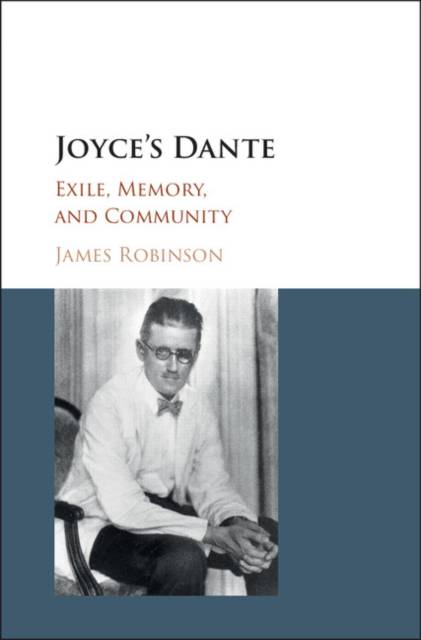
Door een staking bij bpost kan je online bestelling op dit moment iets langer onderweg zijn dan voorzien. Dringend iets nodig? Onze winkels ontvangen jou met open armen!
- Afhalen na 1 uur in een winkel met voorraad
- Gratis thuislevering in België vanaf € 30
- Ruim aanbod met 7 miljoen producten
Door een staking bij bpost kan je online bestelling op dit moment iets langer onderweg zijn dan voorzien. Dringend iets nodig? Onze winkels ontvangen jou met open armen!
- Afhalen na 1 uur in een winkel met voorraad
- Gratis thuislevering in België vanaf € 30
- Ruim aanbod met 7 miljoen producten
Zoeken
Omschrijving
Joyce's engagement with Dante is a crucial component of all of his work. This title reconsiders the responses to Dante in Joyce's work from A Portrait of the Artist as a Young Man to Finnegans Wake. It presents that encounter as an historically complex and contextually determined interaction reflecting the contested development of Dante's reputation, readership and textuality throughout the nineteenth century. This process produced a 'Dante with a difference', a uniquely creative and unorthodox construction of the poet which informed Joyce's lifelong engagement with such works as the Vita Nuova and the Commedia. Tracing the movement through Joyce's writing on exile as a mode of alienation and charting his growing interest in ideas of community, Joyce's Dante shows how awareness of his changing reading of Dante can alter our understanding of one of the Irish writer's lasting thematic preoccupations.
Specificaties
Betrokkenen
- Auteur(s):
- Uitgeverij:
Inhoud
- Aantal bladzijden:
- 242
- Taal:
- Engels
Eigenschappen
- Productcode (EAN):
- 9781107167414
- Verschijningsdatum:
- 14/10/2016
- Uitvoering:
- Hardcover
- Formaat:
- Genaaid
- Afmetingen:
- 162 mm x 238 mm
- Gewicht:
- 489 g

Alleen bij Standaard Boekhandel
+ 377 punten op je klantenkaart van Standaard Boekhandel
Beoordelingen
We publiceren alleen reviews die voldoen aan de voorwaarden voor reviews. Bekijk onze voorwaarden voor reviews.











